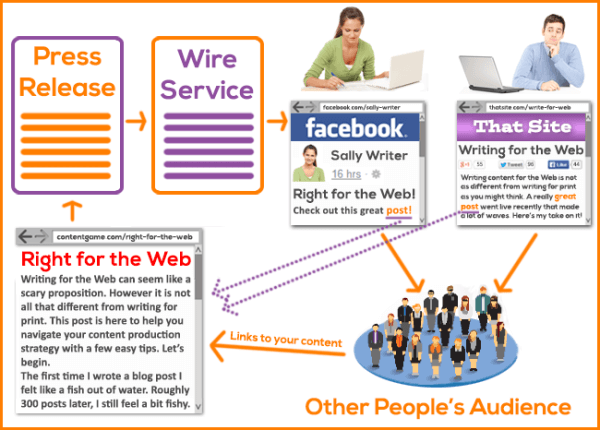The Indirect SEO Benefits Of Guest Posting
If you follow the world of search engine optimization (SEO) at all, you know about Matt Cutts’ January 20, 2014 post, The Decay and Fall of Guest Blogging for SEO. For many people, this was a shock; but frankly, it was inevitable. Then, on March 19th, Google Penalized MyBlogGuest. This shocked people even more, largely […]
If you follow the world of search engine optimization (SEO) at all, you know about Matt Cutts’ January 20, 2014 post, The Decay and Fall of Guest Blogging for SEO. For many people, this was a shock; but frankly, it was inevitable. Then, on March 19th, Google Penalized MyBlogGuest.
This shocked people even more, largely because MyBlogGuest was in no way designed with spammy goals in mind. However, it appears that people were using the platform to do some spammy things; so, regardless of the design intent of the site, Google decided to take it out. For the record, I expect that some guest posting practices and sites will take more hits during the course of this year.
One of the biggest problems with the practice of guest posting for SEO was the way people were approaching it. Many people were following the goal of pursuing the maximum number of different domains. This inevitably led to problems.
Let me illustrate this with an example. First imagine that a publisher’s business has 100 different websites that write about that market space on a regular basis. Of course, the authority level of the sites varies, perhaps looking something like this:
| Number of Sites | Authority Level |
|---|---|
| 3 | High |
| 5 | Pretty High |
| 12 | Respectable |
| 20 | Weak |
| 25 | Very Weak |
| 35 | Genuinely Bad |
Now, imagine this publisher does only one post per site; they do six guest posts per month, and they are quite fortunate, so they get on the high authority sites right away. Over time, the quality of the sites their new articles go on declines. In fact, by the fourth month they have already reached the “Weak” category, and by the 11th month, they are putting new posts on Genuinely Bad sites.
The only way for them to avoid this is to start posting on sites that don’t write about their market space on a regular basis — and there we have a different problem, which is a lack of relevance. Either way, they have lost your way. This not what a business would do to promote themselves in a world without search engines; that’s for sure.
What We Can Learn From Press Releases?
Issuing press releases for SEO was something that people used to do, and it also became a much maligned practice. However, there is and there always has been a right way to use press releases. That way is to get exposure to media people as shown in this illustration:
Press releases can cause media/bloggers to learn about your business, and that can be a great thing. A smart guest posting strategy can have that impact, too. It may be a little more indirect, but the concept is the same, as shown here:
Focus On High-Authority Columns
In the model I outlined above, we had three high-authority sites and five pretty high-authority sites. That’s your sweet spot. They have larger audiences, and the amount of authority they can transfer to you is greater. Publish a great article there and you will likely get tons of social shares for that article, and great exposure to other industry influencers and other people’s audiences, which is just what you are looking for.
Of course, those high-authority sites may not be easy for you to get into, and you may need to work your way up to that level. I wrote about how do that here. The key is to realize that the biggest boost to your reputation and visibility will come from the sites that, well… wait for it… have the biggest reputation and visibility.
Summary
Should you do guest posting for SEO? As a primary objective, I’d say no. But, even if Google disables all links from guest posts, the reality is that the indirect impact remains very powerful.
There is nothing like building your reputation and visibility to cause people to want more of your content. You get to build up your own audience, and ultimately some of these people will find their way to your site, find great content there and link to it.
Contributing authors are invited to create content for Search Engine Land and are chosen for their expertise and contribution to the search community. Our contributors work under the oversight of the editorial staff and contributions are checked for quality and relevance to our readers. The opinions they express are their own.
Related stories
New on Search Engine Land


